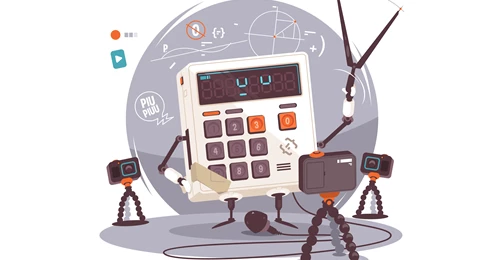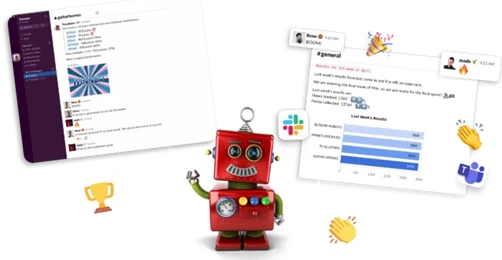[Pros & Cons] Excel timesheet vs online time tracking
10 min read
Time tracking
Build your perfect data foundation for spotless invoicing and deep business insights with easy time tracking.
Project management
Be a world champion project manager. Keep your projects on track - and profitable.
Resource management
Efficiently staff projects and run a predictable business with confidence.
Insights & Reporting
Get smarter - faster - to make clever decisions for long-term growth impact.
Project accounting & Invoicing
Invoice everything - fast and accurate - while staying on top of project finances.
Staff & Salary
Give accountants and HR an intelligent tool to eliminate draining administration.
Financial Systems
TimeLog offers standard integrations for all your favourite financial systems. Save time and reduce manual tasks.
Payroll Solutions
TimeLog offers standard integrations for multiple payroll solutions. Get easy salary administration and only enter payroll information once.
Add-ons
Track time automatically via Outlook, use gamification or find another add-on that can support your business.
Multiple Legal Entities
You can create synergy between your departments and across borders and offices with the Multiple Legal Entities module from TimeLog.
Business Intelligence
Utilise the insights you get from TimeLog to the fullest. Our system is ready to integrate with multiple BI solutions.
Partner Integrations
TimeLog PSA is part of a large ecosystem. Get an overview of all the partner integrations in the TimeLog family.
Economy department
Save 1-2 days a month on your invoicing process.
Project teams
From planning to execution and evaluation. Robust tools for every project manager.
Management teams
Create a performance-driven culture with solid reporting capabilities.
Large enterprises
Enhance operations and performance across entities, countries and departments.
NGOs and non-profit organisations
Simplify internal processes, spend less time on administration, and get documentation in place - at a discounted rate.
Blog
Get inspired to run an even better business with articles, guides and analyses.
Guides, podcasts and webinars
Get access to templates, guides and webinars that help and inspire you.
Help Center
Looking for help material and user guides to the TimeLog system? Look no further. Find all the help you need now.
Get a single source of truth
Discover how companies maintain a single source of truth across borders, departments, and currencies.
Get integrated
Discover the advantages customers gain from utilising our integrations and API.
Reporting in real-time
Explore how others leverage reporting to optimise their processes and make informed decisions.
Get started with resource planning
Discover how other companies thoroughly grasp their resources and enhance their ability to predict future trends.
Improved project financials
This is how the efficient financial toolbox from TimeLog helps project managers and CFOs improve their project financials.
Faster invoicing
Discover how other companies have slashed the time spent on invoicing by 75% - and uncover how you can achieve the same efficiency.
The Story of TimeLog
Get insights on TimeLog and how we can help you grow and evolve your business.
Employees
See who shows up every day to deliver the best PSA solution.
Career
What's life like at TimeLog? Are we hiring? Get the answer here.
Partner
Create even more value for your customers, as well as ours, as a TimeLog Partner.
Premium Service
Online Help Center, tailored onboarding and support from Day 1.
Corporate Social Responsibility
We work to ensure a positive impact on planet, people and businesses.
Security and GDPR
Learn more about how we work to keep your data safe and provide maximum security.
6 min read
Are you finding it hard to close your employees’ weekly timesheets? Or are you “the bad guy” whenever they must submit their time registrations? If so, then gamification may well be the solution.
Here’s the biggest challenge you must tackle if your company registers time.
If you’re a manager, a bookkeeper, or a project manager, you probably have to spend far too much time nagging people to get them to file their weekly timesheets on time.
Meanwhile, your employees aren’t overly motivated to turn in their timesheets because they can’t see that it makes much difference.
So they usually put it off until the last minute.
And when they do register all their hours for the week immediately before leaving the office on Friday afternoon – or worse yet, at the end of the month – they have to work with guesstimates. You doubtless have no trouble imagining what it means for the data quality when you have a team of 30 or more people registering their hours in this way.
You can turn the time tracking issues on their head if you add an element of gamification to the mix.

And added complication in having your employees working in such a slapdash manner is that many of them will almost certainly benefit your customer from any doubts that arise. In practice, this means that they will be more likely to register hours as “internal time” than as time spent on a customer project if they can’t quite remember if they spent 2 hours or 2½ hours on a given task.

Here’s a quick and easy experiment to visualise how many hours you lose by leaving time registration until the end of the week.
Try gathering all your employees together on a Friday afternoon and then ask them what they have done over the week. Whoever matches what is written in the diary most closely wins a prize.
How well do you think they’ll do?
A study published in the Harvard Business Review shows that it costs companies significant sums when their employees fail to prioritise time registration daily.
But how about if you could motivate your employees to compete to be the best at registration time?
This is the fundamental idea behind the concept of gamification of time registration.
Before I show you how gamification can help deal with the problems linked to time registration, it’s worth looking at why otherwise highly competent people seem to have such trouble handling something as simple as registering time properly.
None of your employees submits imprecise weekly timesheets – often late – on purpose because they are dim or cannot see the point of doing so in the first place.
Instead, they do so because, for most people, time registration is a chore – and no one is overly keen on chores.
Time registration is a chore competing with everything else that motivates and interests your employees: customers, projects and the professional challenges they face every day. And it’s a chore that doesn’t produce the immediate payoff that is crucial to whether activities are considered worth doing, and thus given higher priority on the “to do list” during a busy working day.
When you have 50 emails in your inbox and customers calling you up every five minutes, it’s hard to find the motivation to make room for time registration.
But you can turn this situation around if you add an element of gamification to the mix.
If one thing interests most people – it’s other people.
We are all keen to be part of a community, we love competition and it gives us a real kick every time we receive a reward or turn in a good (or better) performance in relation to our colleagues.
The concept of gamification feeds into our innate desire for community, play, competition and reward to make dull tasks seem fun and appealing.

In the context of time registration, the idea is to transform the task from an irritating chore into a competition with a strong social element.
Our test shows that it works.
Here at TimeJam, we’ve tested gamification at several companies, which has yielded highly positive results.
For example, all the employees at Frankly – a digital agency based in Copenhagen, Denmark – registered an average of 30 more hours per month.
While at NoA Ignite, the experiment meant that more-or-less all timesheets for the previous week are now closed when the staff arrive for work on Monday morning.
Similarly, Kolme Group noted a nine percent increase in turnover in the months immediately after they started using TimeJam because the employees had registered more billable hours.
And the time registration geeks at TimeLog could see that the accuracy of time registration increased by 53 percent.
At the same time, feedback from the employees themselves suggests that they’re having fun competing with their colleagues. Best of all, more hours are being registered across the board.

Even though it may be as little as 30 more minutes per employee your company registers weekly; it will make a huge difference. It is not uncommon for at least half an hour to get “lost in the flood” when you register your time at the end of the week.
So, if you’re charging DKK 1,200 per hour, the calculation is as follows:
There are several ways to apply gamification if you want to nudge your employees towards improving their habits.
For example, in TimeJam we’ve created a bot we call TimeBotto, which automates an internal competition among the company employees.
But if you want to have a go at bringing gamification into your time registration practice yourself, here are five principles you can use to make a start.
The long-term benefits of time registration will inevitably lose out to the immediate drawbacks if the time registration process is complex and inconvenient.
Therefore, the reward for doing it correctly should be almost as immediate.
If your time registration system features the option of providing immediate positive feedback, switch it on.
If you are running an internal competition, make sure that the prizes are awarded regularly and that you celebrate the winners every week – not just at the end of the year.
Most good time registration tools can generate statistics on how accurately you register time.
However, if your employees cannot see these time registration statistics, they won’t impact motivation.
On the other hand, statistics shared openly with the workforce in the form of a competition can be highly motivating. Mainly if you divide your employees up into teams and have them compete with the other teams.
It is human nature to go the extra mile to benefit the community.
Changing the teams and prizes regularly is also a good idea, as this keeps the dynamism alive and prevents the game from becoming a stale routine.
Why is it that people who play games like Candy Crush and Fortnite keep on playing “just five more minutes”?
And why do people who use the Nike running app keep on lacing up their running shoes?
It is because the creators of these games understand that when people can see a new badge or title on the horizon, they tend to keep going until they reach it.
Although your employees shouldn’t devote a disproportionate amount of time to their time registration, if you are creative with the badges and titles you prepare for them – and make it fun – when they register their hours and submit their weekly timesheets on time, you may be surprised at how much of an impact it has on their behaviour.
Regardless of the size of their monthly paycheck.
Am I doing well enough? Am I winning the game?
If your employees can’t answer these two questions, you probably need to clarify the objectives of your time registration process.
Set up clear goals for the time registration – for example, that the average period between the time the work is carried out and the time the hours are registered should be less than 1 day (and the shorter, the better).
The whole point of gamification is that it should be fun and a game.
Even though different people have different ideas about what makes a game, we all love to play.
So if you want to apply gamification to your time registration process, it must never carry the whiff of an irritating chore, nor be littered with poorly concealed reprimands.
For example, you could use GIFs or humorous messages when you provide fast feedback. Or include a “winner dance” when someone wins the competition. Whatever it takes.
If you think this sounds too difficult, you can always team up with a colleague or involve the employees themselves in shaping the framework.

Today, more tools are available to help you implement gamification in your organisation.
Most companies currently use solutions such as Microsoft Teams or Slack to keep the competition running, which opens up a range of excellent options.
Likewise, many excellent time registration systems make registering hours easy and accurate.
For example, TimeLog features a simple time registration app and generates reports showing how good users are at registering their hours.
If you already have some other tools, you can start with TimeBotto, which integrates seamlessly with the other systems.
TimeJam offers a 30-day free trial period, which you can access here.

6 min read
![[Free template] 10 things you must know about time tracking in Excel](https://timelog.com/hubfs/psa-software-brancher.webp)
6 min read
 Read more
Read more
5 min read